Chinatown (New York, N.Y.)
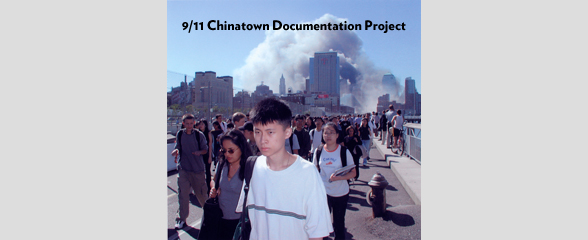
2014.036.008 Oral History Interview with Joseph Chu, April 26, 2004
Joseph Wah Chu is a Chinese immigrant from Toishan County, Guangdong Province, China born in 1933. He grew up in Guangzhou and Hong Kong before eventually moving to the United States in 1965. In the United States, he worked in different cities such as San Francisco, Chicago, and New York City as a waiter and office worker. Joseph would eventually settle in New York City’s Chinatown, citing better job opportunities and existing friendships in NYC. In 1978, Joseph started working at the New York Chinatown Citizen Center, where he assisted senior citizens with applications for government benefits such as food stamps, Medicaid, and senior housing. He recalls the changes over time in Chinatown, from lowering crime to increasing difficulty finding housing for seniors. During 9/11, Joseph was taking a group of seniors out on a field trip. He recalls the transportation shutdown that made his group go to New Jersey to double get back to New York. He describes the reaction and also the impact of the attacks on the senior population. Joseph also talks about government assistance provided following the 9/11 attacks, which ranged from rent/business assistance to free air purifiers and air conditioners. The interview then turns to a discussion about Chinatown’s economic recovery and the changing senior demographics in Chinatown and concludes with a mention of ongoing issues related to housing.
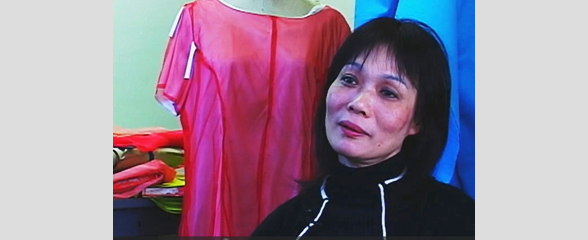
2014.036.009 Oral History Interview with Angela Ng, January 20, 2004
Angela Ng immigrated to the United States in 1970 from Hong Kong and worked as a unionized garment worker for over 25 years. In the interview, she describes her work and experience as a garment worker, and talks about the changes happening in the garment industry. She also discusses union benefits, work conditions, family life for workers, pay, and job availability. On September 11th, 2001, Angela was working at the garment factory when she noticed a plane fly too low overhead and heard an explosion nearby. She recalls scrambling to reach out to family members and taking hours to get home due to the transportation shutdown. After the attacks, Angela describes the decline in work in the garment factory, loss of certain worker benefits, reduction of hours, and the change in workplace dynamics, specifically the decrease in worker leverage over factory owners as a result of a lack of garment orders.
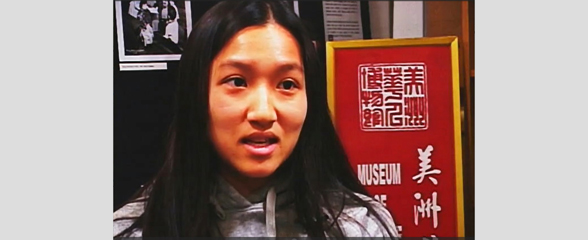
2014.036.010 Oral History Interview with Karen Hsin, January 27, 2004
Karen Hsin, born in 1982, was a college student living in Chinatown with her mother, a unionized garment worker at the time of the September 11th attacks. In the interview, Karen begins by describing her family and childhood experiences living with just her mother in Chinatown after her parents divorced in 1984. She reminisces about her school life and trips back to Hong Kong as an American Born Chinese and shares her thoughts about her cultural identity and her relationship with her mother. During the September 11th attacks, Karen was enrolled in Oberlin College in Ohio and witnessed the attack on television. She recalls trying to contact her mother to check if she was okay. Karen then describes her mother’s situation following the 9/11 attacks and how they were able to benefit from government relief that enabled them to obtain financial aid, vocational training, and equipment such as air purifiers. Karen also describes the living conditions of Chinatown and discusses the issues within Chinatown and how they are often attributed to the “passiveness†of the Chinese residents. She urges Chinese Americans to advocate for themselves through means such as voting. Karen also emphasizes the need for Chinese Americans to expand their own horizons and worldviews and also unite together to advocate for themselves.
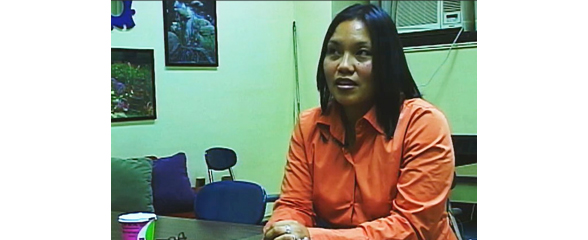
2014.036.011 Oral History Interview with Mirian Yau Oyola October 17, 2003
In this interview, Mirian Yau Oyola recounts her family’s migration from Guangdong, China to Panama and reminisces about her childhood growing up on a ranch and in a large Asian community in Panama. She chronicles her family’s eventual move to New York City, familial dynamics within a mixed family, the difficulties of cultural assimilation into American life with a Chinese stepmother, and the stark contrasts between life in Panama and America. Growing up in Brooklyn, she recalls how her neighbourhood was segregated by ethnicity down to the streets that they lived on, illegal child labor in Chinatown sweatshops, and a family scandal that created an irreconcilable rift. She recalls her involvement with the Chinatown YMCA, work as a youth counselor, and the waves of ethnic Chinese immigrants over the decades. Mirian reflects on the duality of her life being of mixed race (half Chinese and half Hispanic), the cultural expectations placed on her, her struggles with cultural identity, and the distinct emptiness she felt not being fully of either cultures. Mirian vividly recounts the day of September 11th, to which she was an eyewitness, and the confusion and mad scramble to reunite lost children to their parents that followed. She explains her patriotism and describes all the ways that she is proud. She recalls the fears that she felt for many of the children in Chinatown and surrounding neighborhoods in the aftermath of the events.
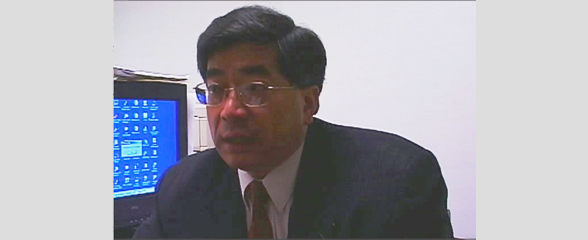
2014.036.017 Oral History Interview with William Chiu, March 30, 2004
William Chiu, born in 1952, begins this interview recalling his childhood growing up, learning and working in Hong Kong. He talks about his father’s work as a chef and his father’s fateful opportunity to immigrate with his family to the United States. He describes his education and reasoning for desiring to go to the United States. William recounts his first job working as a waiter in training before beginning to work with his father in the restaurant business. He also describes the working conditions and his experiences dealing with discrimination towards Chinese people during his time in Chinatown and the Bronx. William and his father would eventually open a Chinese takeout restaurant in Long Island near the Stony Brook area, with William working the front and his father working the back. He expanded his enterprises following his father’s passing and started businesses in real estate, travel, and food imports. He reflects on the impact of the 9/11 attacks on Chinatown and the economic downturn it has caused residents as well as the businesses he owned. William also describes the community advocacy work he has done for the Chinatown community, especially in police relations. He concludes the interview with his thoughts on Chinese unity and hopes that his children would carry on the family’s cultural values.
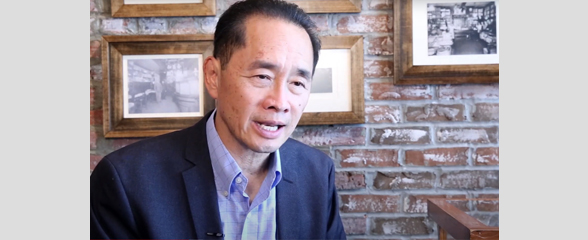
2018.034.002 Oral History Interview with Ti-Hua Chang
In this oral history, MOCA interviews Ti-Hua Chang, a Chinese American television news reporter who was the first journalist to cover the story of the Golden Venture when it ran aground off Rockaway Beach, Queens, on June 6, 1993. He discusses how he was first informed about the Golden Venture and the process of reporting on the event. Chang recounts how his news station had brought in an anti-immigration lawyer to speak on the story, and how he felt compelled to speak up to counter the lawyer’s hate rhetoric, launching into a speech about Chinese Exclusion and anti-Asian racism in the United States. His coverage continued during the detainments. He reveals that the ten individuals who drowned during the Golden Venture voyage were kept in the New York City morgue for months because no one wanted to bury them, and they were eventually sent to a pauper’s grave, where they were buried in stacks of five, which according to Chinese superstition, meant that their souls would never be at peace. When Thomas Sung, of the Abacus Federal Savings Bank, heard about this, he donated money to have the drowned individuals buried in separate plots. Chang speaks about the racist attitudes towards Chinese people in the United States and the issue of organized crime in the Chinese community. He believes that the Golden Venture passengers were unfairly detained to be made examples by the United States government to discourage Chinese undocumented immigration. He believes that the United States owes reparations to Chinese people, who built the Transcontinental Railroad and were integral to the development of this nation, and yet were met with Chinese Exclusion. Finally, he stresses the importance of having diverse newsrooms and journalists who would have the cultural competency to cover diverse stories.
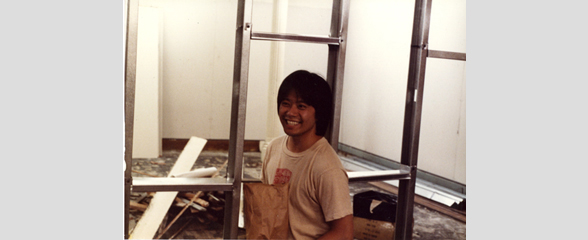
2021.022.001-1 Interview with Charlie Lai July 20, 2012
Charlie Lai along with Jack Tchen are founders of the Chinatown History Project, which has gone on to become the Museum of Chinese in America. In this five part interview conducted over the course of several months Charlie talks about his childhood in Hong Kong and how his family eventually decided to immigrate to the United States when he was nine years old. He talks about living with his uncle when they first arrive in the states and saying on Long Island. His family eventually moves into their own place in Manhattan. Later he recounts his time at Princeton and his community organizing effort to recruit more Asian students to the school even though he was not fond of the institution. While still a student at Princeton he spent summers working at Basement Workshop, which was where he met Jack Tchen. Basement had many issues with inter office politics and eventually closed. Charlie and Jack began discussing ideas, which would turn into the Chinatown History Project at 70 Mulberry Street. Charlie eventually steps down as executive director of the museum because he didn’t feel he could take it to the next level. But is called back when his replacement Fay Chew needs his help in growing the organization into a bigger space. Charlie recounts in depth his fundraising efforts with Maya Lin in the wake of the 9-11 attack to try and find the museum a new home, which ends up being 215 Centre Street. He makes mention of his personal life and marriage to Pat, whom he met while community organizing in college. After leaving the museum for a second time Charlie talks about working a few months at the Chinatown Manpower Project.
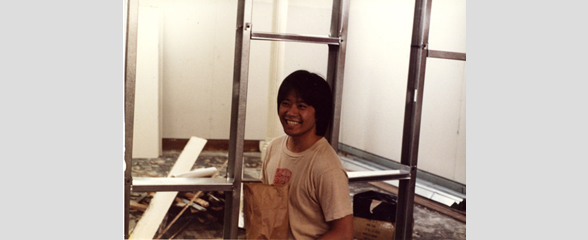
2021.022.001-2 Interview with Charlie Lai July 23, 2012
Charlie Lai along with Jack Tchen are founders of the Chinatown History Project, which has gone on to become the Museum of Chinese in America. In this five part interview conducted over the course of several months Charlie talks about his childhood in Hong Kong and how his family eventually decided to immigrate to the United States when he was nine years old. He talks about living with his uncle when they first arrive in the states and saying on Long Island. His family eventually moves into their own place in Manhattan. Later he recounts his time at Princeton and his community organizing effort to recruit more Asian students to the school even though he was not fond of the institution. While still a student at Princeton he spent summers working at Basement Workshop, which was where he met Jack Tchen. Basement had many issues with inter office politics and eventually closed. Charlie and Jack began discussing ideas, which would turn into the Chinatown History Project at 70 Mulberry Street. Charlie eventually steps down as executive director of the museum because he didn’t feel he could take it to the next level. But is called back when his replacement Fay Chew needs his help in growing the organization into a bigger space. Charlie recounts in depth his fundraising efforts with Maya Lin in the wake of the 9-11 attack to try and find the museum a new home, which ends up being 215 Centre Street. He makes mention of his personal life and marriage to Pat, whom he met while community organizing in college. After leaving the museum for a second time Charlie talks about working a few months at the Chinatown Manpower Project.
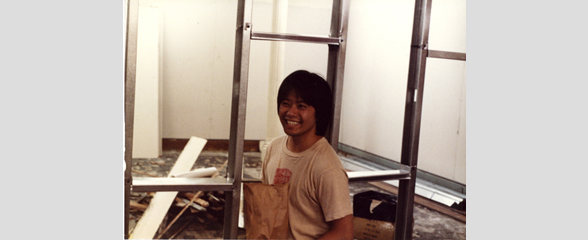
2021.022.001-3 Interview with Charlie Lai July 27, 2012
Charlie Lai along with Jack Tchen are founders of the Chinatown History Project, which has gone on to become the Museum of Chinese in America. In this five part interview conducted over the course of several months Charlie talks about his childhood in Hong Kong and how his family eventually decided to immigrate to the United States when he was nine years old. He talks about living with his uncle when they first arrive in the states and saying on Long Island. His family eventually moves into their own place in Manhattan. Later he recounts his time at Princeton and his community organizing effort to recruit more Asian students to the school even though he was not fond of the institution. While still a student at Princeton he spent summers working at Basement Workshop, which was where he met Jack Tchen. Basement had many issues with inter office politics and eventually closed. Charlie and Jack began discussing ideas, which would turn into the Chinatown History Project at 70 Mulberry Street. Charlie eventually steps down as executive director of the museum because he didn’t feel he could take it to the next level. But is called back when his replacement Fay Chew needs his help in growing the organization into a bigger space. Charlie recounts in depth his fundraising efforts with Maya Lin in the wake of the 9-11 attack to try and find the museum a new home, which ends up being 215 Centre Street. He makes mention of his personal life and marriage to Pat, whom he met while community organizing in college. After leaving the museum for a second time Charlie talks about working a few months at the Chinatown Manpower Project.
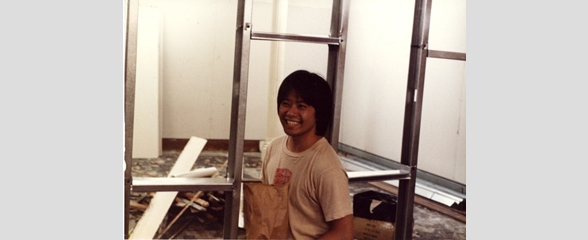
2021.022.001-4 Interview with Charlie Lai July 27, 2012
Charlie Lai along with Jack Tchen are founders of the Chinatown History Project, which has gone on to become the Museum of Chinese in America. In this five part interview conducted over the course of several months Charlie talks about his childhood in Hong Kong and how his family eventually decided to immigrate to the United States when he was nine years old. He talks about living with his uncle when they first arrive in the states and saying on Long Island. His family eventually moves into their own place in Manhattan. Later he recounts his time at Princeton and his community organizing effort to recruit more Asian students to the school even though he was not fond of the institution. While still a student at Princeton he spent summers working at Basement Workshop, which was where he met Jack Tchen. Basement had many issues with inter office politics and eventually closed. Charlie and Jack began discussing ideas, which would turn into the Chinatown History Project at 70 Mulberry Street. Charlie eventually steps down as executive director of the museum because he didn’t feel he could take it to the next level. But is called back when his replacement Fay Chew needs his help in growing the organization into a bigger space. Charlie recounts in depth his fundraising efforts with Maya Lin in the wake of the 9-11 attack to try and find the museum a new home, which ends up being 215 Centre Street. He makes mention of his personal life and marriage to Pat, whom he met while community organizing in college. After leaving the museum for a second time Charlie talks about working a few months at the Chinatown Manpower Project.